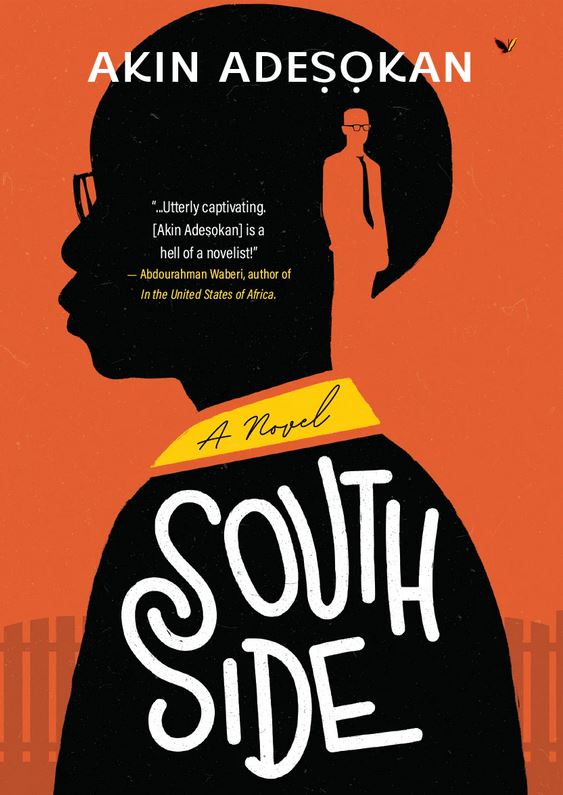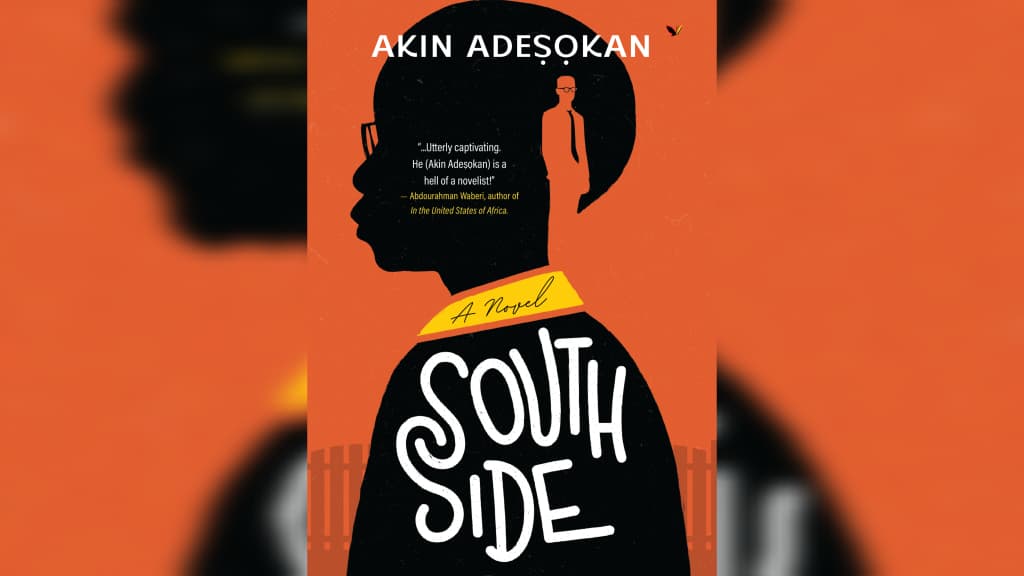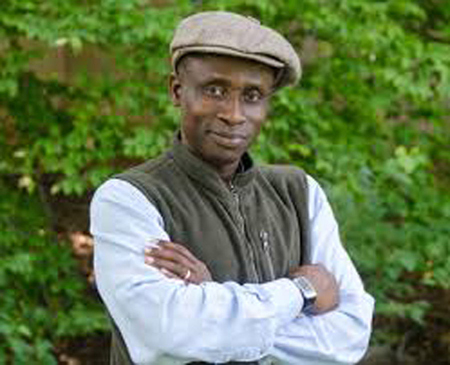The central character of Akin Adesokan’s recently published novel, South Side, is an author struggling with finding a voice and a place in world where identities and loyalties shift like the grains of sand in an hourglass.
Adesokan, himself a Nigerian-American professor of Comparative Literature and of Cinema and Media Studies at the Indiana University Bloomington, is in a good position to discuss this issue of migration, dislocation and loneliness in the midst of a crowd as a ‘stranger’ in a ‘foreign land’.
As writer, Sarah Ladipo Manyika wrote, South Side is not just a novel ‘but an important framework for reconsidering how we imagine belonging in our fractured world.’ The ‘overlooked stories of the unceasing movements of people within and beyond the continent,’ as the author described it.
The main protagonist of South Side, Abel Dankor is literally a person of the world. Born in international waters to refugee parents, he is landless and homeless – with stories of a long lost heritage (and his skin tone) as the only, fading and increasingly tenous, link to the African continent he likes to come home. It is the burden of this very ghostlike existence – and Dankor’s efforts to overcome and break the cycle – that serves as the pin for the narration.
And what a rich narration it is! In South Side, Adesokan treats the reader to a buffet of riches with indepth of explorations of cultures and lived experiences ranging from the spartan and impersonal habits of Scandinavia, the spontaneous and emotionalism of the Mediterranean, the aloof smugness certain segments of American society and the calculated freewheeling of parts of Africa.
It is a novel that captures the growing pains of an African continent grappling with the aftermath of colonial governance and its lasting contradiction represented by ethnic and class divisions, military coups and sometimes fatal intrigues of unreconstructed politicians more at home in dark smoky rooms than in bright exacting halls of public service.
Reading South Side is like a journey into global history, music, culture and cuisine as we crisscross continents and cities along with the protagonist. Along the way, the narrative is enlivened with dashes of poetry the way a confident chef sprinkles spices into a boiling broth (‘O maples ofAnnapolis, feel my pain…’).
Confident in his craft, the author was not stingy with literary terms and evocative phrases. The Gambia (a country in west Africa) is described as being ‘slender like a river of sweat flowing out of Senegal’s armpit’! We are introduced to ‘a swarm of locusts perching on a fecund field and taking off once the lush greenry was gone’ in effort to understand unfeeling and perhaps cruel rejection in a relationship gone wrong.
The title of the novel itself appears plucked from the rootless and restless nature of a river – ever elastic and constantly on the go. The river the author picked flows ‘south side, the abandoned site of what home might feel like.’
South Side is the story of the life of a child of refugees growing up in a west African nation known as Mande. (Most of the references would point to Sierra Leone as the possible approximation of this fictional country.) Abel Dankor, through a mixture of his own innate ingenuity and luck, later found himself beneficiary of a scholarship to study in the UK where his career as a writer took off. A residency in Italy and an ultimately futile but frenetic love affair with the married manager of the writers residency provided a growing up pedestal for him to understand the nature of his inner demons. Although he appeared set to slay this on a return to Mande and romantic involvement with a woman he fell deeply in love with, this was yet a bridge too far. His lover died and his career as a school teacher unraveled amidst machinations of local politics and misunderstanding with his mentor – the local griot and literary master.
Left gripping with the mist of a dream deferred, Dankor ran away to Europe again on another residency and eventually fetched up in Annapolis, USA. In between, a friend of his youth became embroiled in local Mande politics that would take him to jail and eventually into high office amidst a maelstrom of local and international intrigues, backroom dealings and personal ambition.
Adesokan’s South Side is a narrative of broken expectation, unfulfilled yearnings and love gone wrong. It is a novel about man’s unrequited search for meaning and purpose. It is also about man’s enduring capacity for self- realisation, inventiveness and courage in the face of adversities.
Above all, South Side, Adesokan’s second novel is a tour de force in the philosophical examination of the understanding of home, homelessness and being. It will serve as a worthy reading for the modern man caught in the vortex of changes brought by technology and fluidity of work. A companion for the man of the world that is, like the rolling stone, seemingly rootless and unencumbered by the limitations of geography and the history.
Adesokan’s first novel, Roots in the Sky, won the ANA Prize for Fiction in 1996. He also translated Isaac Delano’s novel, Aye Daiye Oyinbo into English as The Age of the White. South Side is published by Parresia Publishers Ltd.
Originally published by: The Guardian



Comments (0)
Leave a Comment
No comments yet. Be the first to comment!